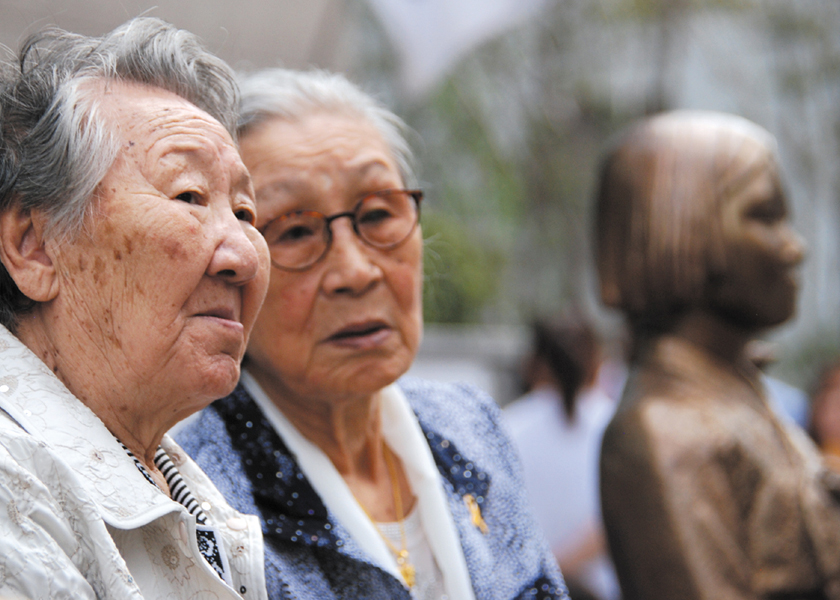Former comfort women win the right to reparations from Japan for military sexual slavery | By Martha Vickery (Winter 2021 issue)
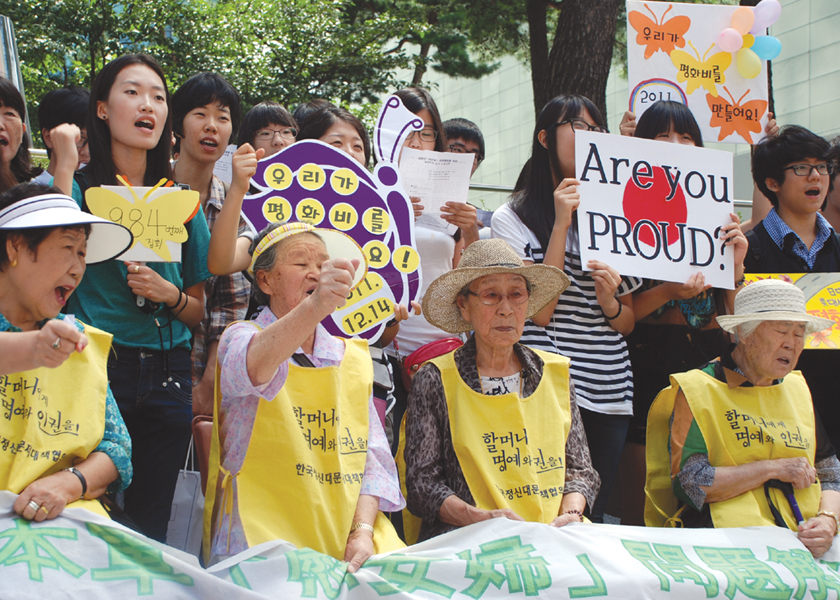
A legal victory was announced in January in favor of a small group of Korean former military sexual slaves in a Korean court, ordering the government of Japan to pay reparations for war crimes suffered by the women when they were captured or lured into forced prostitution by the Japanese military during World War II.
This case is a historic win because it is the first ruling of its kind by a court in South Korea against Japan. The court rejected the claim by Japan that the case should be dropped based on sovereign immunity, a legal doctrine that allows a state to be immune from a civil suit in foreign courts. It sided with the victims that the immunity rule should not apply to “systematic crimes against humanity, and war crimes.”
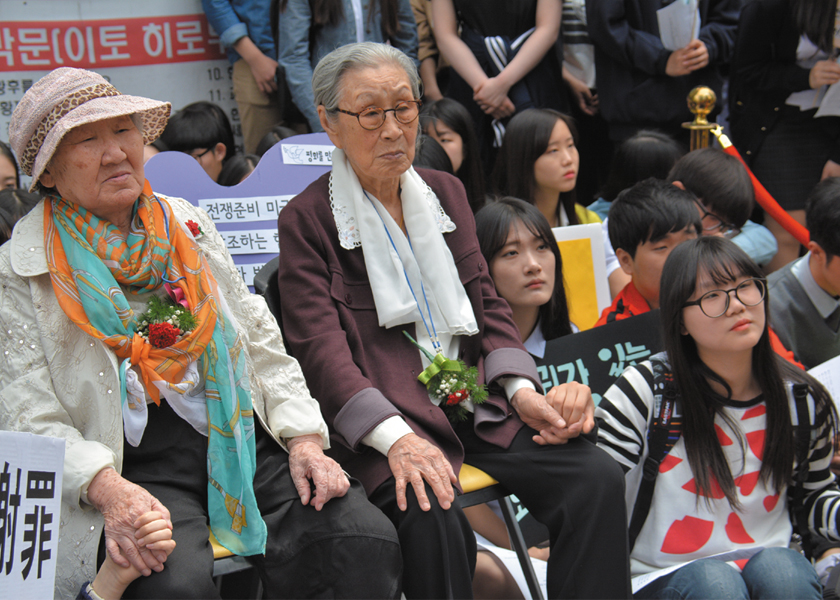
The January 8 decision ordered Japan to pay the plaintiffs an estimated $100 million won each (about $91,300) as reparations in this case which was filed in 2013 (12 individuals originally filed, of whom five are surviving). A second case on behalf of a group of 20 former comfort women (four of whom are surviving), was filed in 2016, and is still pending. In South Korea, there are 16 surviving former comfort women (known as the halmonis, or grandmothers) of the 240 who publicly told their stories starting in the early 1990s.
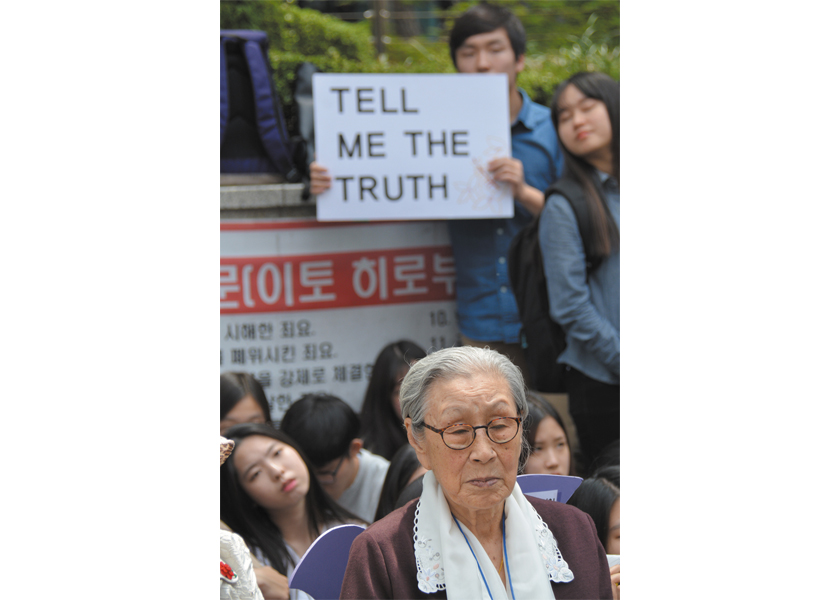
The advocacy organization that maintains the registry and represents the former comfort women’s cause is the Korean Council for Justice and Remembrance for the Issues of Military Sexual Slavery by Japan (known as the Korean Council). The suit was filed by the progressive legal and human rights organization Minbyun (Lawyers for a Democratic Society) along with the House of Sharing, an assisted living home and advocacy organization for surviving former comfort women.
A representative of the Korean Council, who goes by the pseudonym Horang, wrote in an email, “We would like to emphasize that the meaning of the ruling lies on that the South Korean court acknowledged the illegal colonization and war crimes of the Japanese military sexual slavery for the first time. Therefore, we believe this ruling serves to restore human rights and dignity for all victims, both deceased and alive.”
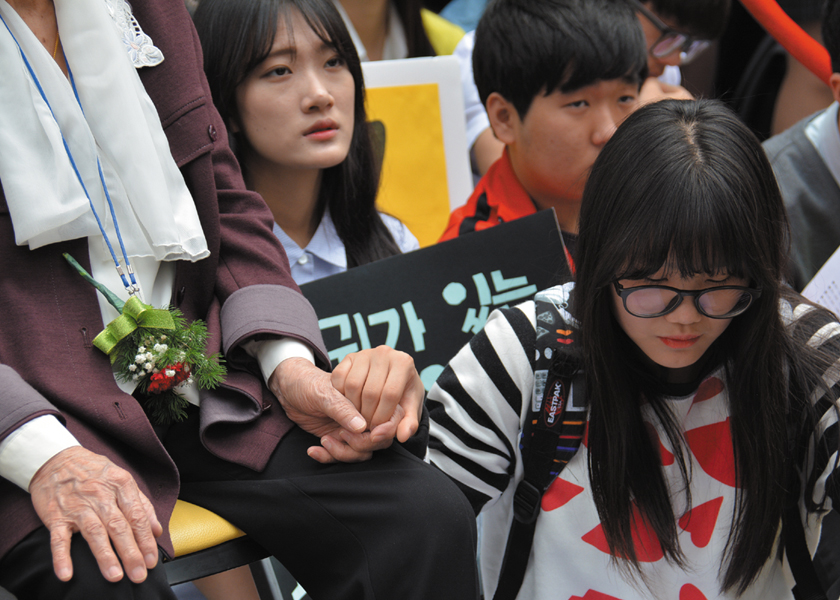
Na-Young Lee, Chair of the Board of the Korean Council, said at the 1474th consecutive Wednesday demonstration on behalf of the former comfort women, that the ruling “reminds us of the truth that state immunity can be rejected and that universal human rights can take precedence over agreements between countries in cases of major violations of the International Human Rights Law and the International Humani-tarian Law. It set a significant precedent that foreign states can be judged by the court if they seriously violate human rights of individuals.”
Lee also noted that the “illegality of Japan’s actions during the colonial period was recognized for the first time by the judicial system” and that by confirming that forcibly mobilizing women into sexual slavery is illegal, the ruling recognizes Japan’s crimes against humanity.
The ruling also empathized with the victims and “implemented judicial justice with a victim-centered approach,” and also “respected the rights of victims to remedy and reparations and accepted the appeal of the victims “whose other measures of remedy have been blocked.” Lee said that the ruling also “affirmed that no existing statement or agreement has solved this issue.”
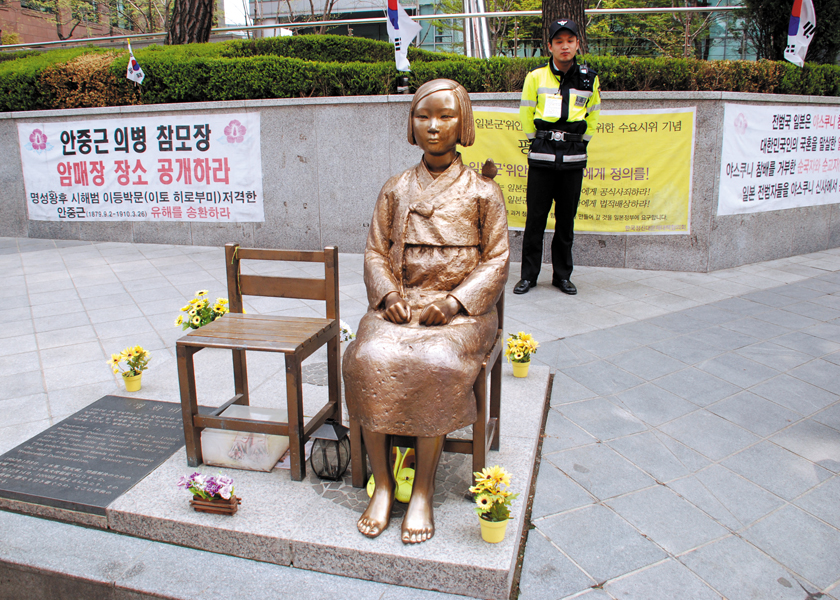
There was a treaty between South Korea and Japan in 1965 that ostensibly settled claims between South Korea and Japan for a sum of $300 million. It was later legally established that the claims settled did not include claims of individuals who were forced into slave labor by Japan. Furthermore, Horang noted, the treaty did not cover claims by former military sex slaves, because at that point, the Japanese government had not acknowledged that it had ever enslaved women into military forced prostitution.
A more recent 2015 deal by conservative President Geun-hye Park with Japan, which claimed to settle outstanding war issues between Korea and Japan failed in terms of public buy-in, in part because it was vehemently rejected by the former comfort women. Under that agreement, Japan paid $1 billion yen (about $8.3 million) to set up a foundation to support the survivors. The former comfort women, represented by the Korean Council, publicized that it was settled by Park without input from the victims. It was suggested in the media that Park had sold out the survivors’ dignity in exchange for short-term diplomatic and geopolitical gain.
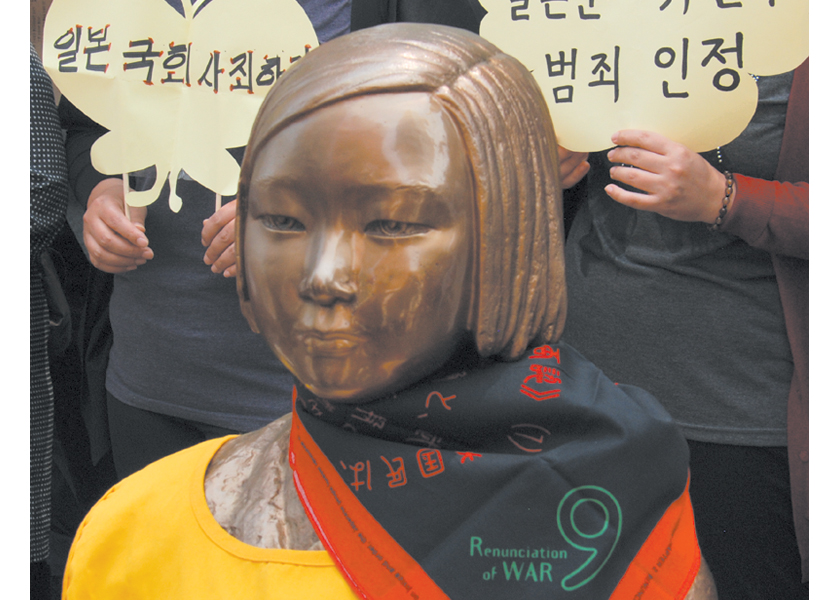
Immediately after the court decision, the Japanese government rejected it, arguing that the Korean government had no right to prosecute, citing state immunity. The Korean Council has kept the story of the comfort women alive through various activites: Speaking tours by the surviving women, and invitations for youth to learn about advocacy and participate in it. It has also appealed to the public through its weekly public demonstrations in front of the Japanese embassy (the longest running weekly demonstration in history), and through its War and Women’s Rights Museum in Seoul.
Horang explained that the movement to clarify legal responsibility of the Japanese government for the war crimes of Japanese military sexual slavery began in early 1990s. Shortly after the first former comfort woman Hak-soon Kim came forward in 1991, several cases were filed in Japan and the U.S. At that time Japan also argued for immunity, she said.
The reparations money, if and when the Japanese government pays it, will go to the surviving women or to successors (named by the plaintiffs in the event of their death). If Japan does not comply with the ruling, Horang wrote, “a separate process would take place for execution of the ruling. Therefore, we urge Japan to respect and comply with the ruling to restore justice and dignity for victims.
To educate about this ruling, the Korean Council has informational images, videos, and newsletters, and organized a series of forums to discuss the implications of the ruling. In late February, the group will hold an international symposium to educate about the case and its meaning to international human rights.
The most important achievement of this ruling, said Lee, is that it “paved the way for restoration of victims’ honor and dignity.” In terms of the law, and the international community, “it recognized that Japanese military ‘comfort women’ victims are not helpless victims who are socially excluded, but proud agents with rights guaranteed in the Constitution.
Editor’s note: This story was compiled with answers to an emailed questionnaire to the Korean Council, along with information from the Council’s press releases, and an English language story by Yonhap News filed January 8, and headlined “‘Comfort Women’ win first legal victory against Tokyo in wartime sex slavery case.” Horang (“Tiger” in Korean) wrote as explanation for her request to use a pseudonym: “Activists in Korea, especially the ones working for sexual violence issues, use nicknames to protect their identities against backlash.”
